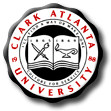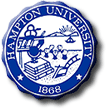



Grants
• Spelman College received a $60,000 grant from the Andrew W. Mellon Foundation for development of digital learning tools for the women’s studies curriculum.
 • The University of Arkansas received a $661,018 grant from the National Institutes of Health for a study on the proteins in cancer cells. The research will be under the direction of Paul Adams, an assistant professor of chemistry and biochemistry at the university.
• The University of Arkansas received a $661,018 grant from the National Institutes of Health for a study on the proteins in cancer cells. The research will be under the direction of Paul Adams, an assistant professor of chemistry and biochemistry at the university.
 • Clark Atlanta University, the historically black educational institution in Georgia, received a $6.5 million grant from the National Institutes of Health for the establishment of the Center of Excellence for Prostate Cancer Research, Education, and Community Services. The grant will support three research projects on prostate cancer and provide scholarship money for undergraduate and graduate students conducting work in prostate cancer research.
• Clark Atlanta University, the historically black educational institution in Georgia, received a $6.5 million grant from the National Institutes of Health for the establishment of the Center of Excellence for Prostate Cancer Research, Education, and Community Services. The grant will support three research projects on prostate cancer and provide scholarship money for undergraduate and graduate students conducting work in prostate cancer research.
 • Meharry Medical College, the historically black medical school in Nashville, Tennessee, received a $1.2 million grant from the U.S. Department of Health and Human Services to develop programs aimed at increasing the number of black physicians and other healthcare professionals.
• Meharry Medical College, the historically black medical school in Nashville, Tennessee, received a $1.2 million grant from the U.S. Department of Health and Human Services to develop programs aimed at increasing the number of black physicians and other healthcare professionals.
• Fifteen historically black colleges and universities will receive a combined $1.5 million in grants from the U.S. Department of Agriculture to generate funds for new business creation and farm cooperatives in rural areas. The grants range from $75,000 to $115,000. Universities participating in the grant program are Tuskegee University, Alabama A&M University, University of Arkansas-Pine Bluff, Delaware State University, Fort Valley State University, Florida A&M University, Kentucky State University, Southern University-Baton Rouge, University of Maryland Eastern Shore, North Carolina A&T State University, Langston University, South Carolina State University, Tennessee State University, Prairie View A&M University, and West Virginia State University.
 • Hampton University, the historically black educational institution in Virginia, received two grants from the National Science Foundation totaling $428,000. The funds will be used to purchase a magnetic resonance spectrometer so chemistry students can study molecular compounds. The grant will also fund the creation of a computation and simulation laboratory in the chemistry department.
• Hampton University, the historically black educational institution in Virginia, received two grants from the National Science Foundation totaling $428,000. The funds will be used to purchase a magnetic resonance spectrometer so chemistry students can study molecular compounds. The grant will also fund the creation of a computation and simulation laboratory in the chemistry department.
![]()
Copyright © 2007. The Journal of Blacks in Higher Education. All rights reserved.